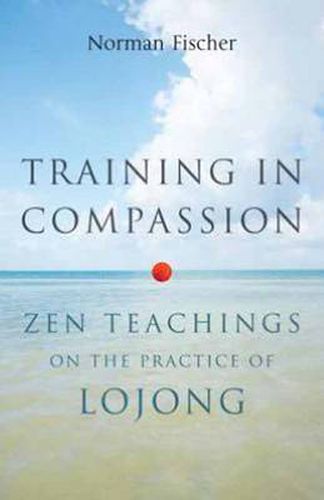Readings Newsletter
Become a Readings Member to make your shopping experience even easier.
Sign in or sign up for free!
You’re not far away from qualifying for FREE standard shipping within Australia
You’ve qualified for FREE standard shipping within Australia
The cart is loading…






A prominent Zen teacher offers a direct, penetrating, and powerful perspective on a popular mind training practice of Tibetan Buddhism (Rick Hanson, author ofBuddha’s Brain)
Lojong is the Tibetan Buddhist practice of working with short phrases (called slogans ) to generatebodhichitta, the heart and mind of enlightened compassion. With roots tracing back to the 900 A.D., the practice has gained more Western adherents over the past two decades, partly due to the influence of American Buddhist teachers like Pema Ch dr n. Its effectiveness and accessibility have moved the practice out of its Buddhist context and into the lives of non-Buddhists across the world.
It’s in this spirit that Norman Fischer offers his unique, Zen-based commentary on the Lojong. Though traditionally a practice of Tibetan Buddhism, the power of the Lojong extends to other Buddhist traditions-and even to other spiritual traditions as well. As Fischer explores the 59 slogans through a Zen lens, he shows how people from a range of faiths and backgrounds can use Lojong to generate the insight, resilience, and compassion they seek.
$9.00 standard shipping within Australia
FREE standard shipping within Australia for orders over $100.00
Express & International shipping calculated at checkout
Stock availability can be subject to change without notice. We recommend calling the shop or contacting our online team to check availability of low stock items. Please see our Shopping Online page for more details.
A prominent Zen teacher offers a direct, penetrating, and powerful perspective on a popular mind training practice of Tibetan Buddhism (Rick Hanson, author ofBuddha’s Brain)
Lojong is the Tibetan Buddhist practice of working with short phrases (called slogans ) to generatebodhichitta, the heart and mind of enlightened compassion. With roots tracing back to the 900 A.D., the practice has gained more Western adherents over the past two decades, partly due to the influence of American Buddhist teachers like Pema Ch dr n. Its effectiveness and accessibility have moved the practice out of its Buddhist context and into the lives of non-Buddhists across the world.
It’s in this spirit that Norman Fischer offers his unique, Zen-based commentary on the Lojong. Though traditionally a practice of Tibetan Buddhism, the power of the Lojong extends to other Buddhist traditions-and even to other spiritual traditions as well. As Fischer explores the 59 slogans through a Zen lens, he shows how people from a range of faiths and backgrounds can use Lojong to generate the insight, resilience, and compassion they seek.